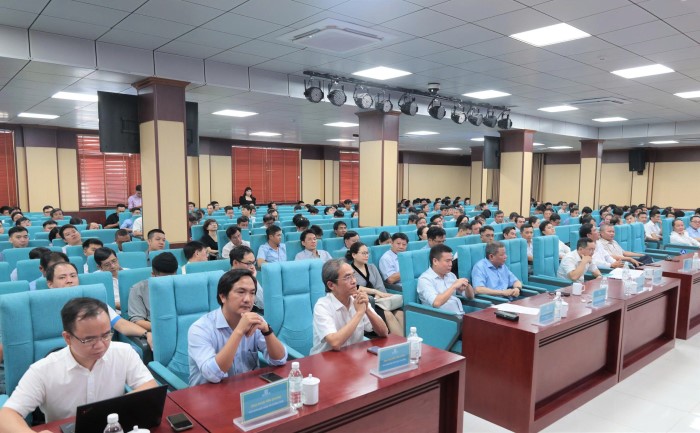On the morning of June 24, at Hospital 199 (Ministry of Public Security), the National Center for Medical Information (Ministry of Health) held a Workshop on "Solutions for implementing electronic medical records". The workshop was attended by Mr. Do Truong Duy - Director of the National Medical Information Center (Ministry of Health); Representative of the Data Center (Ministry of Public Security), and more than 200 delegates who are leaders of units under the Ministry, Departments of Health of provinces and cities, Hospitals and representatives of technology enterprises.

Electronic medical records are one of the key tasks that the Government is particularly interested in, demonstrated through Directive No. 07 dated March 14, 2025 of the Prime Minister on promoting the application of population data, identification and electronic authentication to serve national digital transformation. In particular, the Ministry of Health is assigned to direct the completion of the implementation of electronic medical records in all hospitals nationwide before September 30.
However, according to the data reported by Mr. Do Truong Duy - Director of the National Center for Medical Information at the Workshop, "up to now, the whole country has only 212 Hospitals announcing the implementation of electronic medical records to replace paper medical records. This is a modest number compared to the set target. The main reason is that many medical facilities are still facing difficulties in funding, technology infrastructure, human resources as well as the lack of synchronous coordination between sectors and levels".
In reality, the application of electronic medical records not only simplifies procedures, limits test duplication, saves time and costs for patients, but also makes it easier to track treatment history. At the same time, solutions for identification and electronic registration help authenticate information quickly, safely and securely. However, when transferring medical records data to the network environment, the risk of information leakage is very high if there is no appropriate security solution. Therefore, health care units need to synchronously deploy security tools such as firewalls, anti-malware software, ensuring safety from source code to prevent attacks and protect patient data.

As one of the leading units in the health sector of the People's Public Security and in Da Nang in digital transformation in healthcare, Deputy Director in charge of Hospital 199 Tran Quang Phap said that the unit has proactively deployed electronic medical records and initially recorded clear results in health care. However, implementation reality shows that there are still certain barriers and important forums for Hospital 199 as well as medical facilities to remove difficulties, share experiences, and propose solutions to speed up the implementation of electronic medical records.

In addition, at the Workshop, delegates listened to experts in the field of information security present technical requirements, instructions for implementing electronic medical records; Proposing solutions to promote digital transformation of the health sector integrating electronic identification and digital signature on VNeID; Promoting the implementation of electronic medical records and connecting electronic medical records according to Project 06; Technology solutions to ensure information security in digital transformation for the health sector; Cloud PACS - The key to perfecting electronic medical records in the digital era.


Through the presentations, delegates had a more comprehensive view of technology solutions to support the implementation of electronic medical records such as: technical infrastructure, information security, medical image storage, electronic identification and management software. This is a platform to help medical facilities speed up the digitization of medical records, connect medical examination and treatment data between levels, and gradually build a synchronous and effective digital healthcare ecosystem.
More importantly, the National Center for Medical Information will continue to accompany, provide professional support, and coordinate with localities, hospitals, and businesses to promote the implementation process, ensuring progress and quality of electronic medical records according to the set roadmap.




